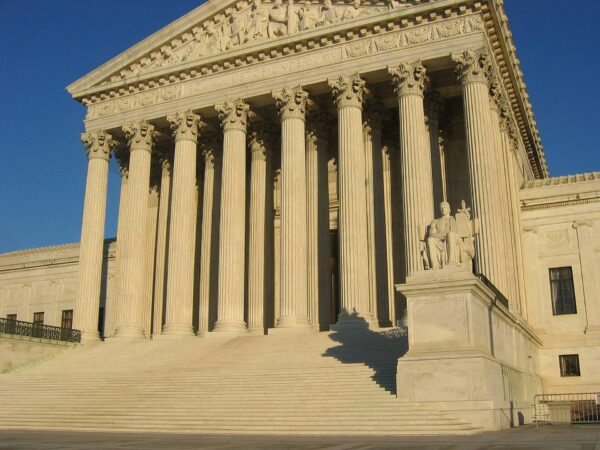The U.S. Supreme Court reportedly delivered a significant ruling on Thursday, rejecting Oklahoma’s bid to establish the nation’s first religious charter school.
The decision, which resulted in an evenly split vote of 4 to 4, came after Justice Amy Coney Barrett recused herself from the case, leaving the court without a majority opinion.
The proposal, aimed at creating the St. Isidore of Seville Catholic Virtual School, was previously deemed unconstitutional by the Oklahoma Supreme Court.
The state court found that the establishment of a religious charter school would violate both federal and state laws, a ruling that now stands following the Supreme Court’s inaction.
This case underscores ongoing debates surrounding the intersection of education and religion in the United States, particularly as states explore charter school options that may incorporate religious teachings.
Proponents of the religious charter school argued that it would provide families with more educational choices, aligning with their values and beliefs.
However, opponents raised concerns about the separation of church and state, emphasizing the potential for taxpayer funding to support religious institutions.
The Supreme Court’s decision to let the lower court’s ruling stand effectively halts Oklahoma’s initiative, which had garnered attention from both supporters and detractors.
Advocates for religious education expressed disappointment, viewing the ruling as a setback in the pursuit of educational freedom.
Legal experts note that the split decision reflects the complexities of interpreting the Constitution in relation to religious education.
The absence of a definitive ruling leaves open questions about how similar cases might be handled in the future, potentially setting a precedent for other states considering religious charter schools.
This ruling arrives amid a broader national conversation about educational reform and the role of government in funding religious institutions.
As states grapple with these issues, the Supreme Court’s decision may influence future legislation and initiatives aimed at expanding educational options for families.
As the debate continues, stakeholders on both sides are likely to mobilize in response to the ruling, advocating for their respective positions on the rights of parents to choose educational paths aligned with their beliefs.
The implications of this case may reverberate through future legal challenges and legislative efforts, shaping the landscape of education in the United States for years to come.
In the aftermath of this ruling, Oklahoma officials and advocates for religious education must navigate the complex terrain of educational policy while considering the legal and constitutional ramifications of their proposals.
The path forward remains uncertain, with the potential for further challenges as the intersection of education and religion continues to evolve in the American legal system.
[READ MORE: Federal Judge Moves to Block Trump’s Attempt to All But End Department of Education]








